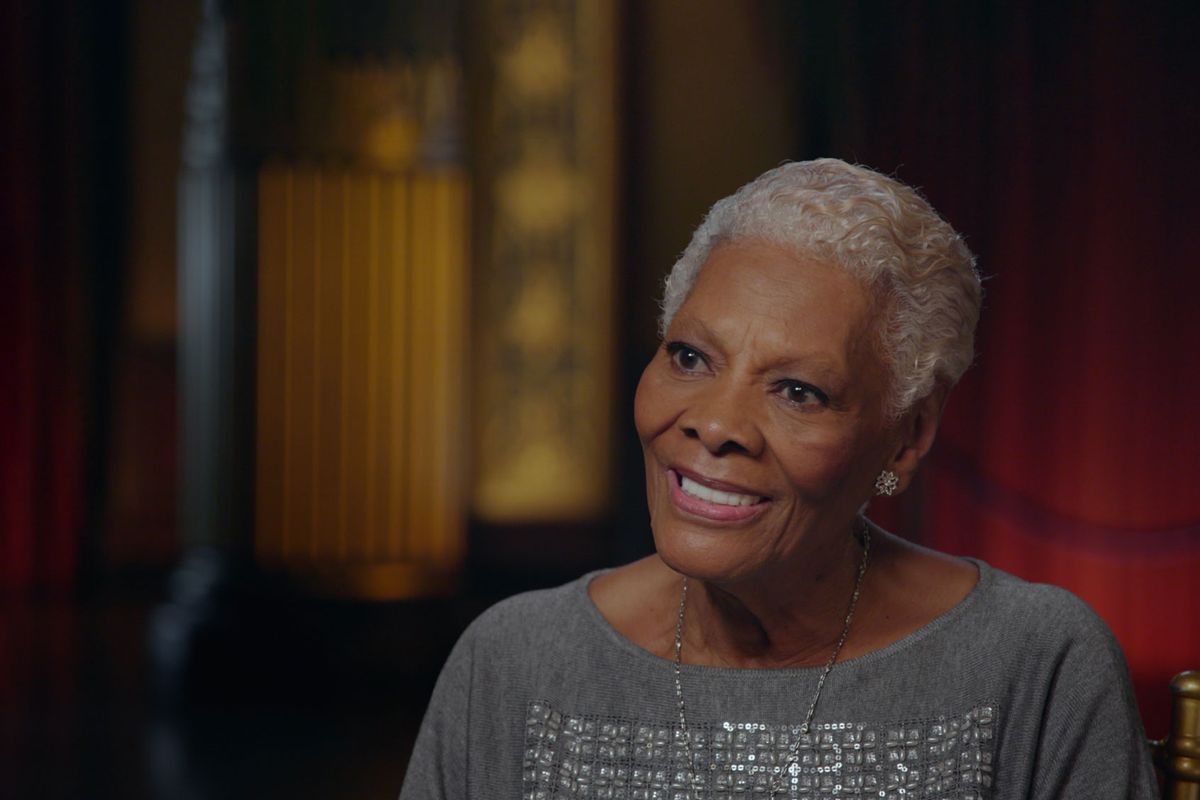Icon Dionne Warwick is a timeless national treasure with hit songs like "Walk on By" and "Say a Little Prayer." While she's known for breaking through the 1960s predominantly white music industry to become one of the first mainstream Black female artists, Warwick didn't know much about her ancestry.
On Tuesday's "Finding Your Roots," the singer came closer to understanding herself and her family's deep Southern ancestry. Like countless Black people in the U.S. who are unable to trace back their ancestry because of how slavery ripped families apart and erased histories, Warwick knew very little about her family lineage.
Host Henry Louis Gates Jr. said that the brick wall of slavery made it difficult to go back generations in her ancestry paternal grandfather's side. However, on her paternal grandmother's side, a door into her family's history blew wide open.
The show's researchers found her great-great-grandparents, Guy and MaryAnn Russ, listed in the 1870 census, living in Jackson County, Florida with their five children. The census was recorded five years after emancipation, meaning that the pair were likely enslaved at some point.
Warwick said, "You know I felt there had to be some sort of relationship to slavery within my family. There's no way that it could have been gotten around."
The show then set out to find more evidence of Warwick's ancestors before emancipation. Since some enslaved people took the surname of their owners, the show's researchers looked for any white farmers in Jackson County with the surname Russ.
While the process was difficult, on the 1860 census they found a slave schedule for a white farmer named Joseph Russ. It listed 31 enslaved people not by name but only by age, race and gender. Each person was represented by a dash.
Gates said that Guy was born between 1814-16, so when the census was taken, Guy would have been between 44-46. On the list, there was one Black male at the age of 46, which the show believed was Warwick's ancestor.
Warwick said it was "ugly" that Guy wasn't named on the list. "The only way those that were purported to own a human being could exist, was by transferring their name, and I only think it's because they only couldn't pronounce ours. That we had certain regality to our own," she said.
"The names were brought on the ships," Gates said.
"Language that we brought with us. They could not understand. 'How could you dare have something that we don't have?'"
"And they took it all away," Gates stated.
"They tried to," Warwick answered.
Warwick's ancestor likely had five more years of enslavement on Joseph Russ' plantation. The show even found the location of the plantation where Guy was likely to have picked cotton for Russ. Gates showed Warwick a picture of Russ. "It puts a face on slavery," he said.
"Yeah, it does. It's not a pretty face either. It's a very ugly face," she said.
In Tallahassee, Florida, emancipation was proclaimed on May 20, 1865. When the 13th Amendment was ratified on December 6, 1865 slavery was abolished. Guy was roughly 50 years old when he received his freedom. However, this didn't mean formerly enslaved people were safe from the rampant increase of brutal violence enacted by the KKK, who were unwilling to give up their power in the South.
We need your help to stay independent
Despite the impending threat of racial violence and calls from Black church leaders to vacate Tallahassee due to safety reasons, Warwick's great-great grandparents remained in Jackson County.
"From the immediate family that I know grew up around and with, we were never afraid of anything. We had our own standards and lived by them. And nobody going to run me out of town. But, you know, not that we are that brave, but we believe in the right," Warwick said.
"I know I'm a strong woman. I have been strong literally from birth. I've never accepted certain things in life. The word no doesn't exist for me," she added. "The word 'can't' does not exist for me. And I'm sure that strength and the being that I am has an awful lot to do with these people who gave that to me."
“Finding Your Roots” airs Tuesdays at 8 p.m. ET on PBS.
Read more
about "Finding Your Roots"



Shares